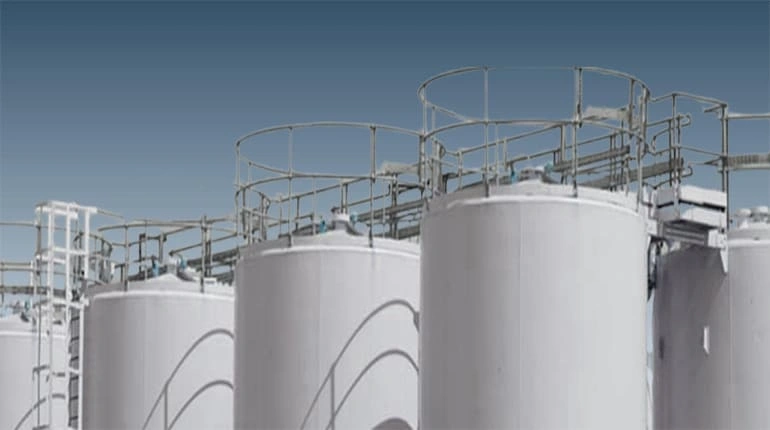
Determining the cost of a cement storage silo is a crucial aspect of any construction project. The cost of a cement storage silo can vary significantly based on its size, material, design, and additional features. Smaller silos made of steel may be more budget-friendly, while larger silos with complex designs and high-quality materials will incur higher costs. To get an accurate estimate, it's essential to consider factors like labor, transportation, and any necessary foundation work. Proper cost estimation is vital for project budgeting and financial planning.
The construction of a cement storage silo involves several critical steps. Initially, a solid foundation is built to support the weight of the silo and the cement it will store. Depending on the silo's size and purpose, construction materials like steel, concrete, or other specialized materials are used to create the silo's structure. The process includes assembly, reinforcement, and sealing to ensure the silo's durability and safety. Proper construction techniques are essential to prevent leaks, maintain structural integrity, and ensure the longevity of the silo.
Cement storage silos are manufactured by various companies specializing in industrial and construction equipment. These manufacturers produce a range of silos with different sizes and features to suit the diverse needs of construction projects. Leading cement storage silo manufacturers often provide customization options, quality assurance, and support services for their products. Buyers should consider a manufacturer's reputation, warranty, and customer feedback when choosing a reliable supplier for their cement storage silo needs.
Cement silo construction is a complex process that demands careful planning and execution. Engineers and construction teams follow detailed blueprints and safety protocols to assemble and install the silo. The materials used, such as steel, concrete, or specialized alloys, are selected based on the intended capacity and environmental conditions. Safety measures are of utmost importance to prevent accidents and ensure the longevity of the silo. Expertise in construction techniques, from foundation laying to sealing and insulation, is vital to guarantee the silo's structural integrity and operational efficiency.
Estimating the cost of a cement fly ash silo involves factoring in several variables. The cost is influenced by the silo's size, materials, design, and any additional features like insulation and environmental controls. Furthermore, considerations include the local labor rates, transportation expenses, and potential costs related to the foundation. Accurate cost estimation for cement fly ash silos is essential for project budgeting and financial planning, ensuring that all expenses are properly accounted for in the construction process.
Manufacturers of cement silos play a pivotal role in the construction industry by providing a wide range of silos designed for various applications. These manufacturers produce silos from different materials, including steel, concrete, and specialized alloys, and they offer customization options to meet the specific needs of construction projects. Reputation, product quality, after-sales support, and warranty terms are important factors to consider when choosing a cement silo manufacturer. Top manufacturers are known for their commitment to quality, safety, and innovation in silo design and construction.
A concrete mixing silo is a crucial component in concrete production. It is a storage container designed to hold the various ingredients required for concrete mixing, including cement, aggregates, and water. Concrete mixing silos come in various sizes and configurations, with some being mobile and others stationary. These silos streamline the concrete mixing process, ensuring that the ingredients are readily available when needed. They are equipped with features like mixing mechanisms and conveyor systems to facilitate efficient and consistent concrete production. The choice of a concrete mixing silo can significantly impact the productivity and quality of a concrete batching plant.






Silos are made of sheet metal, with a stirred covering. Furthermore, in spite of the fact that it might appear to be in any case, the expansion in temperature of the sheet because of the heat of the sun is exceptionally shallow and doesn't influence the grain mass. The temperature variety that influences the grain mass is brought about by the maturation processes, that is when there is a dampness centre that starts to weaken the grain, and one of the outcomes is the temperature increment.
Indeed. It is fundamental to safeguard the grain from stickiness to ensure ideal storage conditions. Along these lines, the silo is provided with clay to seal the joints between the ferrule sheets; and elastic washers are utilized for the screws. In this way, it is suggested that the underpinnings of ground silos be assembled marginally raised starting from the earliest stage.
The temperature inside the silos must be directed to guarantee the grains don't get harmed; that incorporates appropriate air circulation to control how much dampness inside the shut compartment. Another significant thing is to defend the grains from bugs; chemical control inside the silos is expected to shield it from bugs and different rodents. So silos which are bulk storage systems for different kinds of food grains.
Storage silos are structures designed to store grain and other material in mass or powder. They are likewise utilized for storing different components like concrete, calcium oxide, calcium hydroxide, actuated carbon or plastic gums, among others. The most widely recognized storage silos are tube shaped with a metal help in spite of the fact that there are likewise rectangular and square ones. They are like a pinnacle and the material with which they are fabricated can be metal, stainless steel, supported concrete, wood, built up plastic, fiberglass, and so forth.
A silo is a construction for storing mass materials. Silos are utilized in horticulture to store grain or aged feed known as silage. Silos are all the more ordinarily utilized for bulk storage of grain, food items. Silos are involved by different businesses for bulk storage of coal, concrete, sand, woodchips, metal waste, food items and sawdust. Silos range in range from around 10m to 90m with a limit of 20 to 80 tons.
